Olaf A. Hougen Symposium,
2005-2006
2005-2006
ON WISCONSIN BIOTECHNOLOGY:
HONORING EDWIN N. LIGHTFOOT
HONORING EDWIN N. LIGHTFOOT
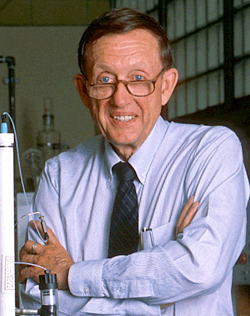 |
The Department of Chemical and Biological Engineering at the University of Wisconsin-Madison is delighted to dedicate this year's Hougen Symposium to Professor Emeritus Edwin N. Lightfoot in recognition of the outstanding leadership he has provided to the developing field of biotechnology over more than 50 years at Wisconsin, and in celebration of his recent receipt of a Presidential Medal of Science.
FOR ENGINEERING
awarded to
EDWIN N. LIGHTFOOT
"For vigorous and sustained leadership in developing the fields of biochemical and biomedical engineering, particularly in the areas of blood oxygenation, oxygen diffusion into tissue, mathematical modeling of biological pathways, bioseparations and studies of diabetic responses."
Schedule of Events
| Thursday, February 23, 2006 Lectures in Room 1610 Engineering Hall |
|
| 10:00 a.m. | Refreshments (in the lobby) |
| 10:15 a.m. | Introduction |
| 10:30 a.m. | Carl E. Gulbrandsen Chemical and Biological Engineering and the Spin-off of Biotechnology Companies from UW-Madison |
| 11:15 a.m. | Abraham M. Lenhoff Optimizing Dynamic Capacity in Protein Ion-Exchange Chromatography by Manipulation of Transport Mechanisms |
| 1:30 p.m. | Richard R. Burgess 1) How Ed Lightfoot Taught Me to Speak ChemEse; and 2) Bioseparation of Labile Protein-Protein Complexes by Gentle Immunoaffinity Chromatography |
| 2:15 p.m. | Bernhard O. Palsson New "Dimensions" in Genome Annotation |
| 3:00 p.m. | Closing Remarks |
Invited Speakers
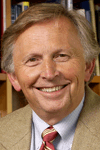 |
CARL E. GULBRANDSEN is the managing director of Wisconsin Alumni Research Foundation (WARF), the patent management organization for the University of Wisconsin-Madison.
Dr. Gulbrandsen will review the spin-out of biotechnology companies from the UW-Madison and the contribution, present and future of the Department of Chemical and Biological Engineering.
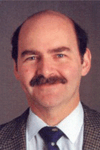 |
ABRAHAM M. LENHOFF is the Gore Professor of Chemical Engineering at the University of Delaware and received his Ph.D. under Ed Lightfoot's direction in 1984.
Throughput and production rates in chromatography are determined to a large extent by transport of proteins within the porous chromatographic adsorbent particles, which takes the form of hindered diffusion but is also affected by its coupling with adsorption. Professor Lenhoff will examine the interaction of diffusion with adsorption in ion-exchange, which is the most widely used mode of chromatography in bioprocessing. A hierarchy of methods — column experiments, batch uptake measurements and confocal microscopy observations — is used to determine both rates and mechanisms of transport. A clear transition is seen in the transport mechanism under certain conditions, and this is accompanied by a dramatic increase in uptake rate that can have major implications for process efficiency. The underlying cause of this change in mechanism is sought with the use of a set of adsorbents that differ only in surface charge density. The results obtained can assist not only in adsorbent selection and in optimization of operating conditions, but also in designing new adsorbent materials with desirable transport properties.
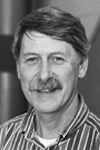 |
RICHARD R. BURGESS is the James D. Watson Professor of Oncology at the McArdle Laboratory for Cancer Research at UW-Madison.
Professor Burgess will present some recollections of his interactions with and education by Ed Lightfoot: as he founded the UW Biotechnology Center in 1984 and directed it until 1996; in realizing the importance of multidisciplinary thinking in biotechnology; in learning to think about bioseparations like a chemical engineer rather than just as a biochemist; and in playing the role of a technology honeybee. He will then discuss the role of his lab in pioneering the identification and use of special monoclonal antibodies (mAbs) in gentle immunoaffinity chromatography. Immunoaffinity columns containing such "polyol-responsive" mAbs bind antigenic proteins tightly but release them under mild, protein stabilizing conditions. He will describe the preparation, optimization and use of these columns in purifying biologically active, multi-subunit protein complexes.
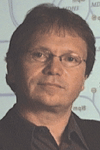 |
